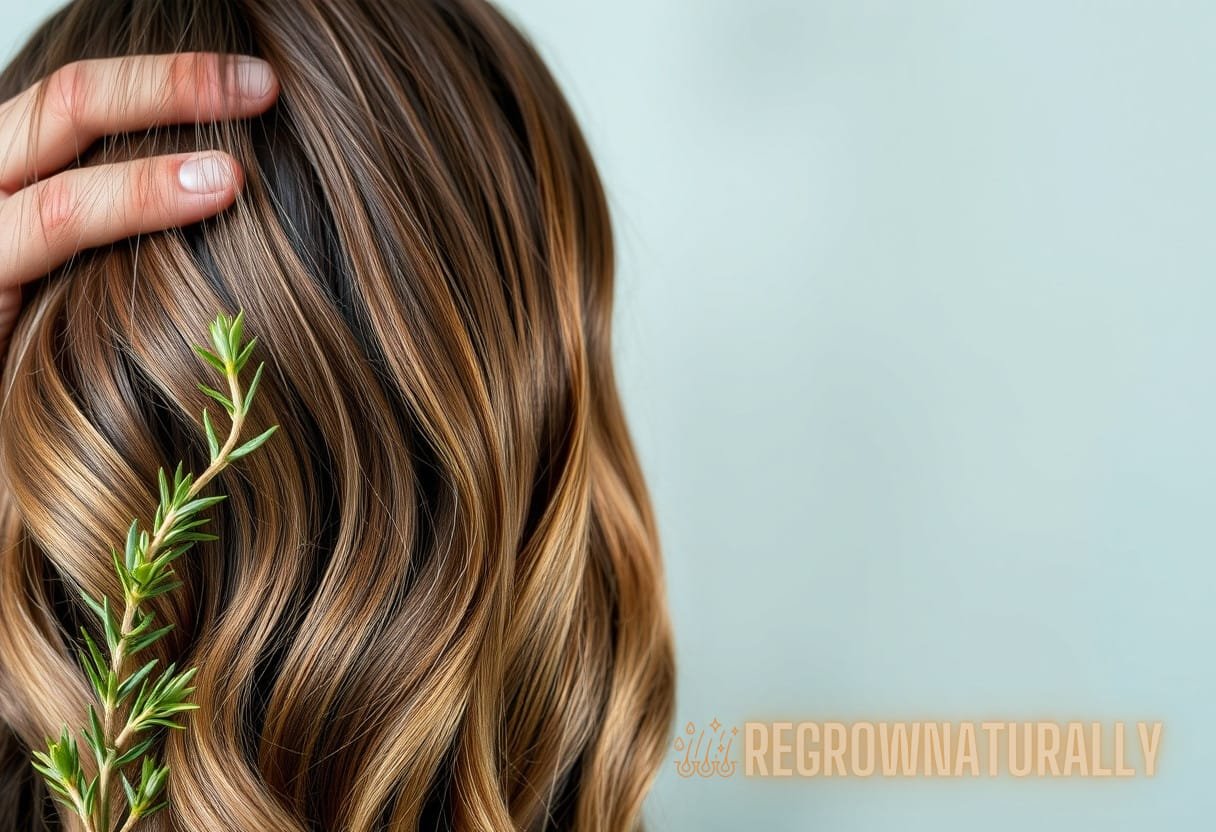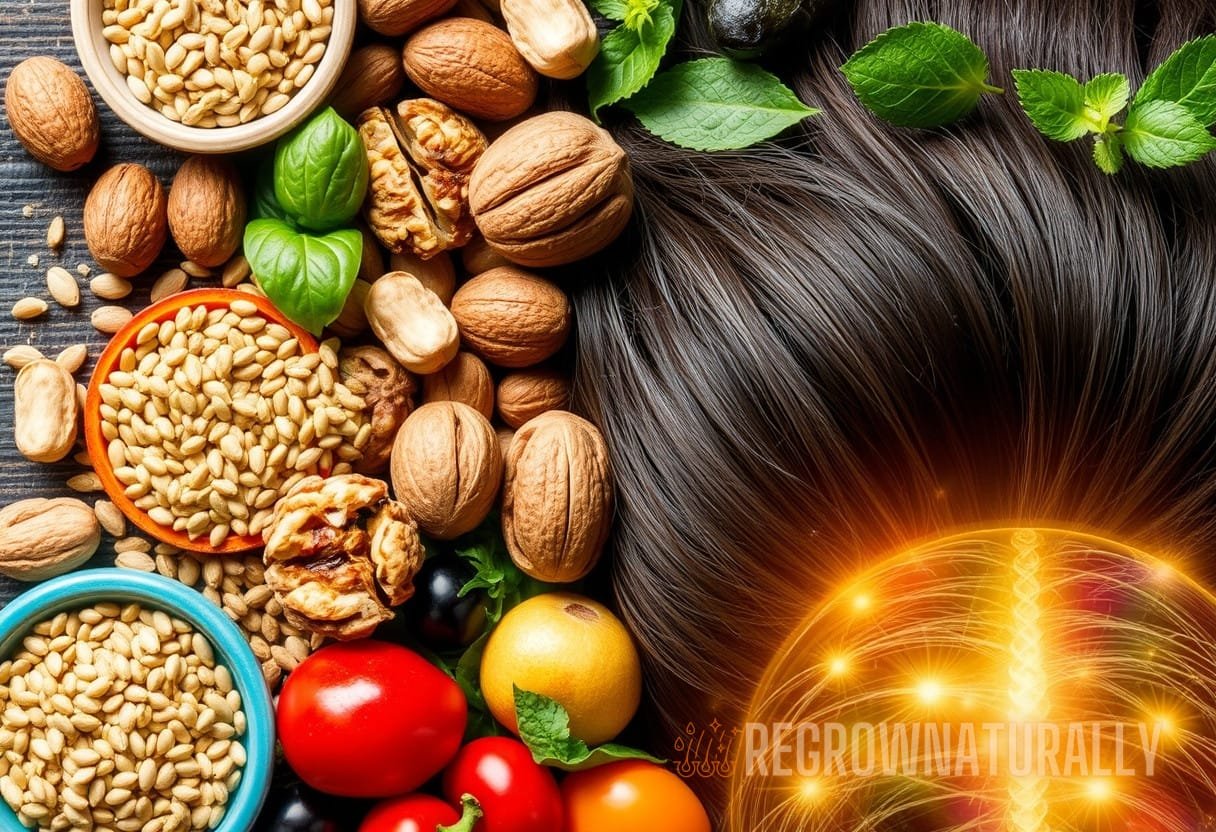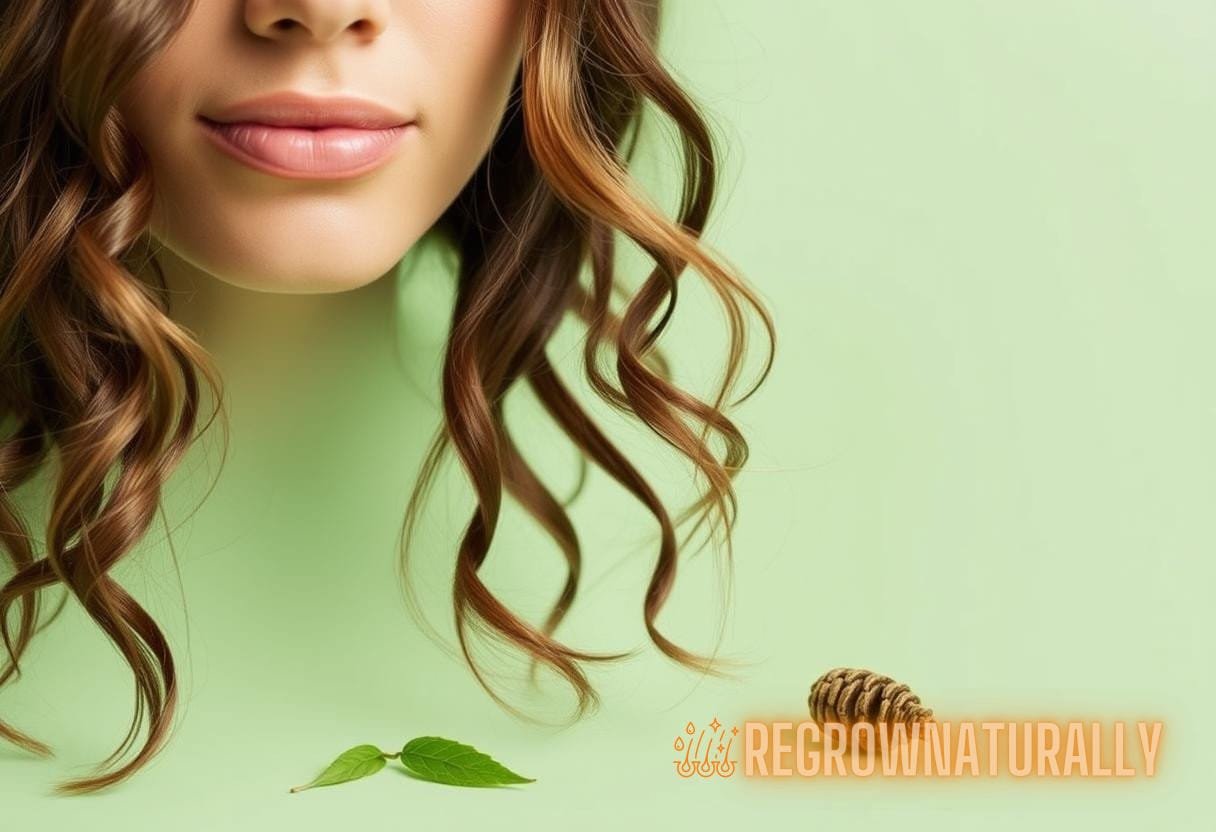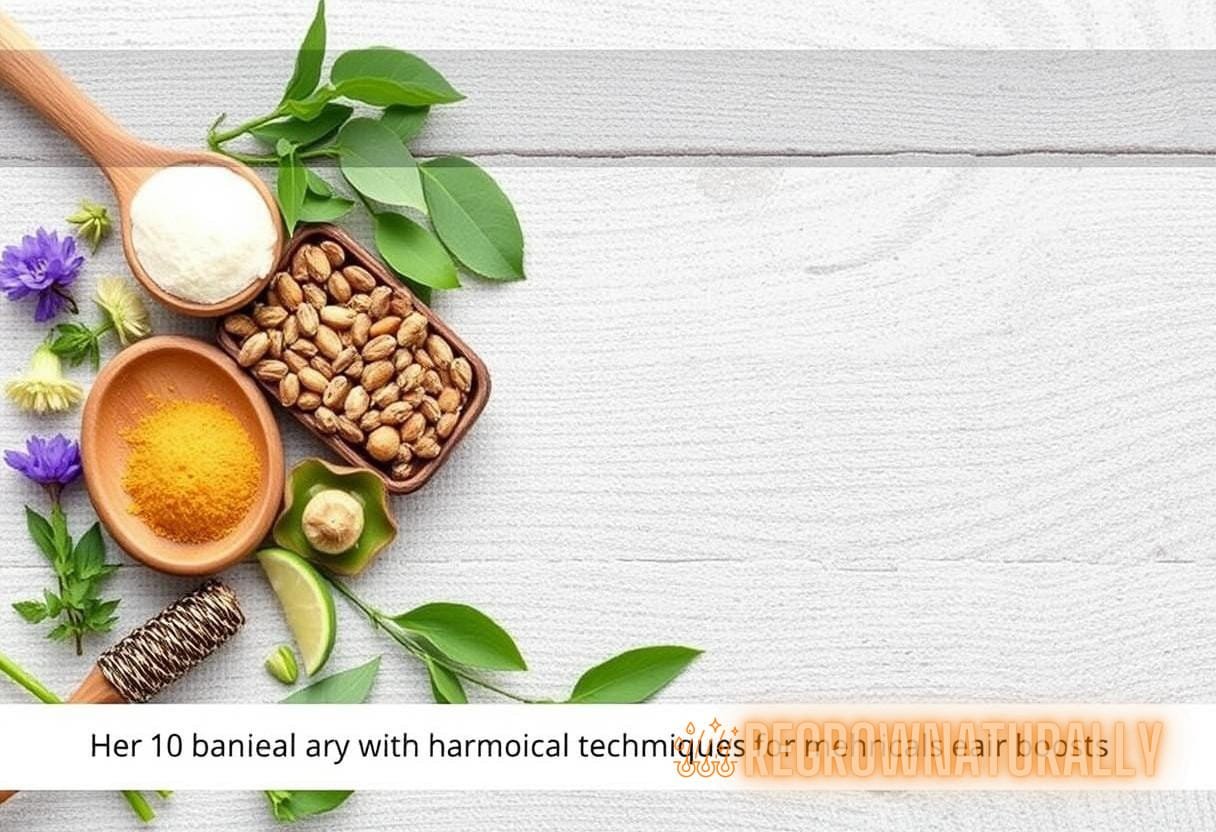Exploring the Synergy of Herbal Biochemistry and Scalp Microbiome for Enhanced Hair Vitality
As the demand for natural remedies grows, the intersection of herbal biochemistry and the scalp microbiome has emerged as a fascinating field of study. Understanding how these two components interact can unlock new potentials for enhancing hair vitality. This guide aims to provide a comprehensive overview of how herbal scalp synergy fosters healthier hair and a more balanced scalp.
Understanding the Scalp Microbiome
The scalp hosts a diverse collection of microorganisms, including bacteria, fungi, and viruses, collectively known as the microbiome. A balanced microbiome is essential for maintaining healthy hair and scalp conditions. Recent studies have shown that an imbalanced scalp microbiome can lead to various scalp disorders such as dandruff, seborrheic dermatitis, and hair loss.
- Dandruff: Often caused by the overgrowth of Malassezia yeast.
- Seborrheic Dermatitis: An inflammatory skin condition linked with skin microbiome alterations.
- Hair Loss: Can result from disruption in the normal scalp microbiome balance.
A 2021 study published in the journal Nature found that specific bacterial populations can inhibit pathogenic fungi, suggesting a direct correlation between hair health and the microbiome. Furthermore, maintaining a diverse microbial community on the scalp can promote more vibrant hair growth.
Herbal Biochemistry: An Overview
Herbal biochemistry refers to the study of active compounds in plants and their biochemical interactions within the body. Plants have evolved sophisticated mechanisms to defend themselves against pathogens and environmental stressors. Many of these compounds exhibit anti-inflammatory, antimicrobial, and antioxidant properties, making them prime candidates for promoting scalp health and vitality.
- Flavonoids: Found in various herbs, they can reduce inflammation and oxidative stress.
- Tannins: These compounds can improve scalp circulation and strengthen hair roots.
- Essential Oils: Oils like tea tree and rosemary possess antimicrobial properties that can balance scalp microbiome.
Comprehensive research has demonstrated that certain herbs like rosemary, thyme, and aloe vera are particularly effective in enhancing hair growth while promoting a healthy scalp microbiome.
The Role of Herbal Scalp Synergy
The concept of herbal scalp synergy emphasizes the use of multiple herbs in combination to maximize their beneficial effects on the scalp microbiome. By working synergistically, these herbs can provide a more profound impact than any single herb alone.
Key elements of synergistic herbal combinations include:
- Complementary Properties: Herbs chosen for their unique yet complementary effects can create a holistic approach to scalp care.
- Stabilizing Effects: Some herbs can stabilize volatile compounds found in essential oils, enhancing their efficacy.
- Enhanced Delivery: Certain formulations can improve the absorption and bioavailability of antioxidants and vitamins.
An exemplary case is the combination of nettle and burdock root. Nettle is rich in vitamins A and C, while burdock root is renowned for its detoxifying properties. Together, they promote healthier follicles and a balanced scalp microbiome.
Key Herbs for Scalp Health

Several herbs have been extensively researched for their individual and synergistic effects on scalp and hair health:
1. Rosemary
Rosemary has shown promising results in promoting hair growth. A 2015 study found that rosemary oil was as effective as minoxidil, a common hair growth medication, in treating androgenetic alopecia.
2. Tea Tree Oil
With its potent antimicrobial properties, tea tree oil effectively combats dandruff and helps maintain a balanced scalp microbiome. It can alleviate symptoms of inflammation and irritation.
3. Aloe Vera
Known for its soothing properties, aloe vera reduces itchiness and acts as a humectant, allowing moisture to penetrate the scalp and hair follicle.
4. Peppermint Oil
Peppermint oil has been demonstrated to improve blood circulation in the scalp, promoting hair growth while also exhibiting antifungal properties.
5. Burdock Root
This herb contains essential fatty acids and phytosterols that support scalp health, providing vitamins that help hydrate and nourish hair follicles.
Combining Herbs for Enhanced Effectiveness
When combining herbs for herbal scalp synergy, it is crucial to consider their individual properties and how they can complement each other. Here are some recommended combinations:
- Rosemary and Peppermint: This blend stimulates blood flow and invigorates hair follicles, promoting growth.
- Tea Tree and Aloe Vera: Combats dandruff while soothing inflamed areas of the scalp.
- Nettle and Burdock: Provides nourishing vitamins and antioxidants that promote scalp health.
Each blend can be applied as a carrier oil, infused in shampoos, or as a part of a scalp massage regimen, amplifying the nutrients through direct application.
Scientific Evidence and Case Studies
Numerous studies have investigated the effects of these herbs on hair vitality. One clinical trial involving rosemary oil, published in the journal SkinMED, highlighted significant hair growth improvement in participants who applied rosemary oil compared to those using a placebo over a six-month period.
Moreover, a cohort study examined the effects of an herbal blend containing nettle, chamomile, and rosemary in participants suffering from hair thinning. Results indicated an increase in hair density and a noticeable reduction in scalp irritation, showcasing the potential of herbal scalp synergy in treating hair loss.

The Impact of Diet on the Scalp Microbiome
While topical treatments are vital, internal factors, such as diet, significantly influence the scalp microbiome’s health. A diet rich in vitamins and minerals can support a balanced microbiome. Key nutrients include:
- Omega-3 Fatty Acids: Found in flaxseeds and walnuts, they help combat inflammation.
- Antioxidants: Fruits and vegetables high in antioxidants, such as berries and leafy greens, support immune function and skin health.
- Vitamins A, C, D, and E: Vital for scalp health and hair production.
Integrating these nutrients with topical herbal remedies enhances the overall effectiveness of a hair vitality regimen, promoting a more balanced state in both hair and scalp conditions.
Practical Applications of Herbal Remedies
For those interested in implementing these findings into daily routines, consider the following practical applications:
- Herbal Hair Masks: Combine powdered herbs with natural oils to create rejuvenating masks.
- Infused Oils: Infuse carrier oils with herbs like rosemary or tea tree for customized scalp treatments.
- Hair Rinses: Use herbal teas made from nettle or chamomile as final rinses during hair washing.
- Dietary Supplements: Consider incorporating herbal supplements after consulting with healthcare providers.
How To Measure Scalp Health Progress
Tracking scalp health can help you identify improvements or areas needing attention. Consider the following metrics:
- Scalp Condition: Examine for signs of irritation, dryness, or dandruff.
- Hair Density: Monitor the fullness and strength of hair follicles.
- Hair Growth Rate: Record any changes in length over time.
- Itchiness:** Report any fluctuations in discomfort on the scalp.
Maintaining a diary of weekly observations can aid in modifying your treatment plans to optimize your usage of herbal remedies.
Technological Advances in Herbal Biochemistry
Recent advancements in biotechnology have allowed deeper insights into how active compounds in herbal remedies interact with the scalp microbiome. Techniques like high-performance liquid chromatography (HPLC) enable researchers to isolate specific compounds abundant in various herbs, revealing how they can be effectively combined for scalp health.
Furthermore, genomic sequencing of scalp microbiomes has provided valuable data on how different formulations may influence microbial balance, leading to more tailored formulations designed to improve hair vitality.
Conclusion
The complex relationship between herbal biochemistry and the scalp microbiome underscores the significance of exploring herbal scalp synergy. By integrating scientific principles with herbal knowledge, it is possible to devise effective strategies for enhanced hair vitality.


